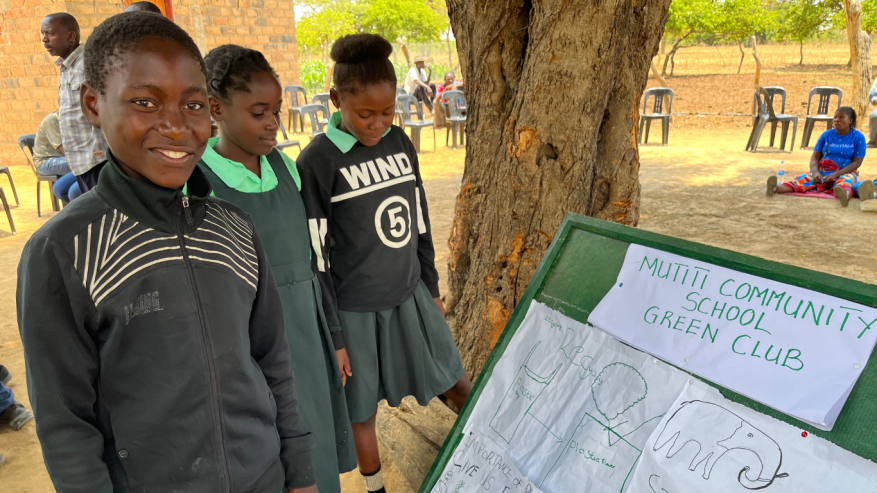Members of Green Club at Mutiti Community School: Ellen Manyepa, Chisowa Moonga and Valencia Moonga.
January 24th is International Day of Education and this year’s theme is “Learning for lasting peace.”
The right to education is fundamental to an individual’s ability to learn and empower themselves. Education has the power to transform lives and offer a pathway out of poverty. It can also be the foundation of more peaceful, just and sustainable societies.
However, about 244 million children worldwide are out of school. 617 million children and adolescents cannot read and do basic maths; and less than 40% of girls in sub-Saharan Africa complete lower secondary school, according to the UN.
At Self Help Africa, our focus is on supporting farming families to earn more from their land so that they can afford to send their children to school, realise their potential and build a brighter future. We are also involved in projects with schools, supporting students to learn about food production, sustainability and to combat climate change.
Within Self Help Africa’s PRESERVE Project, funded by Irish Aid, and based in southern and central Zambia – 13 ‘Green School Clubs’ have been established to harness the energy and direct the concerns of young people to positive action in their communities.
At Gwembe Primary School, the focus is on food production, with school-children playing a leading role in the production of vegetables in a polytunnel that produces crops for a part of the year using hydroponics.
With backing from the World Food Programme, Self Help Africa has supported a school food production initiative at 78 schools across Zambia in the past five years, with over 20 of the schools being supported with hydroponics.
The programme has resulted in a significant increase in school attendance. “We used to have around 600 pupils. Now we have just under 800 attending the school on a daily basis,” said Gwembe Headmaster, Oscar Kabika.
We must continue to invest in long-term education that will lead to inclusive and lifelong opportunities for all, in order to achieve gender equality and break the cycle of poverty that is leaving millions of children and young people behind.

